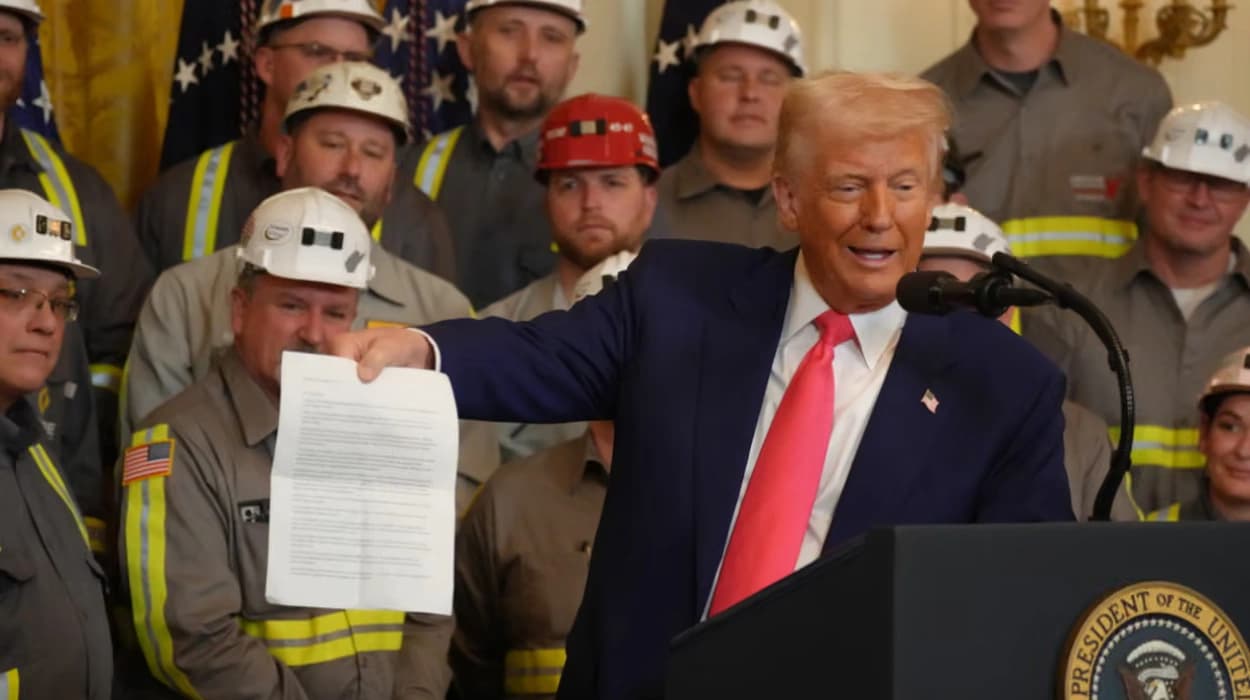Summary
- ICJ ruled fossil fuel funding may violate international law.
- States responsible if they support fossil fuel projects or subsidies.
- Fossil fuel exploration licenses and consumption cited as wrongful acts.
In a late-Tuesday petition to the Inter-American Commission on Human Rights (IACHR), which was exclusively obtained, the petitioners claim that their human rights have been violated by the government's activities.
“The US’s actions over the past 50 years constitute an internationally wrongful act that implicate its international responsibility,”
the petition to the Washington DC-based commission says.
The Organization of American States' quasi-judicial IACHR examines and looks into accusations of human rights abuses before reporting its conclusions and suggestions to the states in question. Its suggestions are not enforceable by law.
The request follows the release of two strongly worded advisory judgments from two leading international tribunals regarding the climate catastrophe. Fifteen out of the twenty-one young climate activists who filed the historic federal climate lawsuit Juliana v. US , which was essentially rejected last year, filed it.
The plea comes after the publication of two strongly worded advisory opinions on the climate crisis from two top international courts. It was filed by 15 of the 21 youth climate activists who previously brought the groundbreaking federal climate lawsuit Juliana v US, which was effectively dismissed last year.
“This petition is about truth and accountability,”
said Levi, an 18-year-old petitioner who was eight years old when the Juliana case was filed.
“For over 50 years, the US government has knowingly protected fossil fuel interests while putting people, especially young people, in harm’s way.”
The latest file describes the various ways the young petitioners have suffered as a result of the climate problem, much like Juliana did. For example, Levi was raised on the barrier island of Florida in the Indialantic. Dangerous hurricanes repeatedly forced him and his family to leave; eventually, they were so severe and frequent that his parents concluded that moving was their only choice.
“Part of why we left was so that my baby sister could grow up in a home with a smaller risk of flooding,”
he said.
“One of the most difficult moments was losing my school after it was permanently closed due to storm damage.”
Levi and the other young activists claim that the United States has violated the American Declaration on the Rights and Duties of Man, an international human rights document that ensures equality before the law as well as economic, social, and cultural rights, as well as customary international law.
The bid was made shortly after the Inter-American Court of Human Rights (I/A court HR), a distinct human rights body that the US does not recognize but that has the authority to make legally enforceable recommendations, released an advisory opinion in early July. According to the judgment, the American Declaration of the Rights and Duties of Man mandates that nations set aggressive goals for reducing greenhouse gas emissions, and the climate problem poses "extraordinary risks" that are felt most by already vulnerable populations.
“Before that happened, we had already been planning to file this,”
said Kelly Matheson, deputy director of global strategy at the non-profit law firm Our Children’s Trust, which is representing the petitioners.
“The timing is pure serendipity.”
The US does not acknowledge the authority of the top court from which the I/A court HR opinion originated, and it is not legally binding. Nonetheless, the opinions can be used by international commissions and courts to interpret the law.
“These young people were born into a climate emergency, they were born into a rights violation, and they have lived every single day with their right to a healthy climate system being infringed upon,”
she said.
“We could get to a healthy climate system by 2100 if we make changes, but even then, these young plaintiffs will live their entire lives without ever being able to fully enjoy and exercise their right to a healthy climate system … Their hope is that their children or their grandchildren might.”
Juliana v. US, filed in 2015, claimed that the government's pro-fossil fuel policies were a violation of the plaintiffs' constitutional rights. The action's initiator, Our Children's Trust, made a last-ditch effort to bring the case back to life last year by requesting that the Supreme Court permit the suit to go to trial in a lower court; however, their request was turned down in March.
The latest lawsuit claims that the courts violated their international legal duties by denying the young challengers access to adequate remedies for the climate catastrophe, thereby causing them ongoing suffering.
What international human rights body received the complaint?
The group of young people who alleged that the U.S. violates international law by supporting an energy system based on fossil fuels submitted a complaint to the UN Human Rights Committee (UNHRC). This is the UN body that monitors states' compliance with the International Covenant on Civil and Political Rights and looks at individual and collective complaints regarding human rights violations by states.
The UN Human Rights Committee is one of the principal international human rights bodies that can take complaints from individuals or groups alleging violations of rights guaranteed under international treaties.
The complaint was made to the UN Human Rights Committee, an international body that has the power to review alleged violations of human rights by states.

